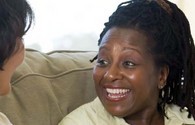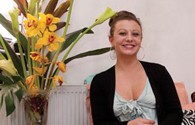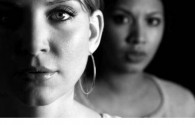
Theme
Childhood trauma and women’s homelessness
This theme explores the issues surrounding the impact of childhood trauma and abuse on the lives of women who are homeless or at risk of homelessness. The theme is led by Expert Group member, Jacqui Dillon, Independent Trauma Specialist. Read the theme round-up here.
In her blog, Jacqui writes: “After one hundred years of denial and ignorance, it is now becoming more widely accepted that sexual, physical, and emotional abuse of children, alongside the impact of neglect, is a genuine and common phenomenon with potentially devastating long term consequences for the mental health of the survivors.
“What is not widely recognised are the many overlapping ways in which childhood trauma can impact on adult lives, including complex needs such as serious mental health difficulties , substance use and homelessness.”
How do we make sure women get the right help, at the right time? We want to hear from practitioners on the ground and from women using services themselves, about what works and what support is missing.
In particular, we want to hear about:
- Psychological support services which address childhood trauma for homeless women
- Services which support girls in the care system or care leavers
- Work on cycles of deprivation and intergenerational factors
- Early intervention services
- Support around sexual exploitation of young women
Please also submit any relevant research so we can gather this together to improve the support out there for women.
If you have already joined the campaign, please log in to submit evidence. If you are not already a member, please click here to register.
RSL_Childhood_Trauma_Theme_Roundup
Theme started on: 04 Jul 2012
20 Submissions
The topic ‘Childhood trauma and women’s homelessness’ is closed to new replies.
Internet highlights
- UK Online Casinos
- Non Gamstop Casinos UK
- Nouveaux Casinos En Ligne
- Casinos Not On Gamstop
- Casinos Not On Gamstop
- Casino Sites Not On Gamstop
- Casino Sites Not On Gamstop
- Casino En Ligne
- Non Gamstop Casino Sites UK
- Fastest Payout Online Casino
- UK Online Casinos Not On Gamstop
- Non Gamstop Casino
- Casino Online Non Aams
- Casino Online Sin Licencia España
- Casinos Sin KYC
- Reputable Non Gamstop Casinos
- Casino Sites UK
- Non Gamstop Casino UK
- Sites Not On Gamstop
- UK Casinos Not On Gamstop
- Sites Not On Gamstop
- Sites Not On Gamstop
- Lista Casino Non Aams
- Casinos Not On Gamstop
- Casinos Not On Gamstop
- Casino Non Aams
- Meilleur Site Casino En Ligne Belgique
- Meilleur Casino En Ligne Belgique
- Migliori Casino Online
- Casino Visa
- Sites De Paris Sportifs
- คาสิโนคริปโตไทย
- 카지노 사이트 추천
- Bookmaker Non Aams
- Meilleur Casino En Ligne
- Casino Bitcoin
- Casino En Ligne
- Meilleur Casino En Ligne
- Casino Crypto



